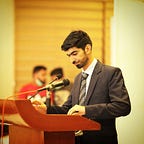Security is most urgent issue of Pakistan but it’s neither territorial nor economic
Over the years Pakistan has kept her focus on defense and internal security and followed the policy of geopolitics of 19th century. It was only in 2022 that Pakistan published its National Security Policy whose most notable feature was shift from geopolitics to geoeconomics. Through entire 19th century of their independence, Pakistani were convinced by their policy maker that security is their biggest concern. And now a same narrative is being built about economy of Pakistan. Although both narratives stand correct to great extent but this narrative is at least two decades late and poorly framed. Pakistan’s tests of nuclear weapons in 1998 and policy of Minimum Credible Deterrence and Full Spectrum Deterrence were enough to establish a balance of power in the region and an immediate shift to geoeconomics was required at the start of 21 century as executed by India. This shift would not have only improved Pakistan’s economic backbone but would have also complemented the policy of ‘Quid Pro Quo Plus’ which aims to build up conventional capabilities of Pakistan’s defense. These capabilities are purely technological in 21st century warfare and can be only achieved by a strong technological and industrial base in a country which Pakistan did not established after becoming a nuclear country.
Now a new narrative of economic urgency is being created but if Pakistan has survived 75 years on this fragile economy it can last few more. A strong and sustainable economy can not be achieved without creating enough means which would support the economy. Pakistan’s most urgent issue is water, food, and social security which would ultimately provide a workforce and resources to power this economy. Pakistan has received 784% increase in rainfall in 2022 which is not is not and certainly not the last anomaly in climate pattern of Pakistan. Pakistan leased two of its airports to Qatar for a gradual investment of $2 billion on one hand and simultaneously it was going through floods which cost her millions of dollars not to mention around a thousand precious lives. These extraordinary rains has affected Pakistan’s policy of geoeconomics on four fronts.
- It has inflicted huge agricultural and financial loss to Pakistan neutralizing the benefits earned from hard economic decisions.
- Pakistan has wasted immense amount of water which would have been crucial to agriculture which utilizes 90% of our total water usage.
- These floods have wasted a crucial water supply which is the could have been the only immediate solution to Pakistan’s energy crisis and closure of industries.
- These floods have damaged multiple water reservoirs and barrages which have further undermined Pakistan’s water security efforts.
Pakistan can sustain for this decade with current economic and defense infrastructure but with current water security infrastructure Pakistan will not last even 3 years as we are set to become water scarce in 2025.
Pakistan has only 27 days water carryover capacity while India has that of 170 days, Egypt 700 days and America 900 days. At this point water security has become an existential threat to Pakistan and instead of creating urgency narrative about economy straight away, we first need to build narrative about water, environment, food, and social security. Aiming for a sustainable structure of economy without a strong base of these bases is just an absurd idea and living a fool’s paradise. Pakistan stands at a cross road of making one of two exclusive choices. Either our policy circles and executives needs to make some unpopular choices to make some long term policies and take long term steps which might risk their political and bureaucratic career or just focus on optics and compromise on the future of Pakistan.
Pakistan’s sincerity to shift to geo-economics is seriously doubtful as evident from its allocations of federal financial budgets. Instead of making desperate measures to stabilize dollar rate and petroleum prices to win a political competition, our policy needs to make desperate measure to produce financial assets for new large scale dams. Media coverage given to increase in utility and petroleum prices should be diverted to water security issues and build narrative and urgency on water, social, and environment security matter. Pakistan needs to stop learning policy failures the hard way and need to pre-empt what’s coming. Pakistan ‘ate even grass if it had to’ for ensuring the national security by diverting efforts to build a nuclear weapon irrelevant of the fact whether its economic and geopolitical outlook was in favor this decision. Although this should not have been the case, but Pakistan needs to adopt the same policy importance, attitude, consensus, and efforts towards the water security in civil, bureaucratic, social and media circles. Either we take long term measures for sustainable economic, energy, and industrial base or we keep drowning our short term economic gains in floods every year, just like our precious lives.
